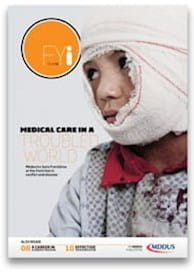DO you have a flair for writing? Maybe you’re already involved in a creative writing club or have published in a journal, whether medical or extracurricular. The ability to communicate effectively in written form for presentations, referral letters or other clinical documentation is vital for junior doctors. But there are many other fun opportunities. Here are some tips to get started.
Cultivate your creativity
There are many ways to improve your writing skills, from blogging to reading groups at your library or online. Carry a notebook to jot down ideas, and keep one by your bedside too. Check out some of the most popular blog platforms – WordPress, Tumblr or BlogSpot, an offshoot of Google. They allow you to design backgrounds, monitor site visitors and tag key words. For inspiration on writing topics and to connect with others, sign up to the Daily Post or Weekly Photo Competition on WordPress. Following the blogs of like-minded people can be a great way to broaden your horizons and learn more about your chosen field, particularly for scientific advances and elective destinations.
Be inspired
It’s often said that the best way to pick up new writing ideas is to read voraciously. While this is difficult to maintain during finals and junior doctor years, some people enjoy reading books on study breaks, while others keep up-to-date with medical news via the web or newspapers. Test your lateral thinking skills with crosswords and wordsearches, and design free “word clouds” from sites like Wordle. There are also some great online courses – Dundee Libraries, for instance, offer free access to over 200 topics including proofreading and copyediting and technical writing.
Get published
Although there’s no guaranteed way to get published, you can achieve this without doing research (although this may not count towards UKFPO applications). Many medical journals accept book reviews, but check with the journal before reviewing as they may have a specific book in mind. If you see an interesting case on the wards then ask your senior (and secure the patient’s informed consent) if you can write it up for the education section. Your writing doesn’t have to be medically related – you can enter a poetry or writing competition or write for your local faith group newsletter or sports club magazine.
Become tech-savvy
The world is becoming increasingly digital and it’s well-advised to move with the times. Whether it’s designing a new medical app or editing an e-book, you can pick up new skills and increase your medical knowledge at the same time. You can find projects for e-books on freelancing websites, just pick a subject that interests you. Uploading to platforms such as Amazon Kindle tends to require Microsoft Word only. You can design a front cover either on the Kindle site or using Word features and convert online to jpeg on sites such as Zamzar.com. If you have access to online courses, try out topics such as HTML and web design to learn about creating your own website.
Extra learning
Writing can be a useful way to earn money as projects tend to be short with flexible working hours. Consider signing up to a freelancing site such as Guru or Elance to find and bid for new projects on topics from writing health tips for websites to trivia quizzes. It’s usually free although they’ll take an admin fee of around 10 per cent. For speedy payment, register your bank or Paypal details at the same time. If you have suitable blog content, you can also monetise your blog by adding adverts such as Google AdSense via BlogSpot. Check the webpage terms and conditions for what makes a marketable blog.
Stay ethical
This is probably the most important consideration for trainees as unprofessional conduct could lead to a complaint to the General Medical Council. Remember that everything you write may be permanently recorded, so avoid defamatory comments, plagiarism and obscure abbreviations, check spelling and grammar, and respect patient confidentiality at all times. Some sites will request you remain neutral on political and religious aspects, unless you are writing for a particular society or group.
The GMC’s Good Medical Practice has more detailed guidance on this topic. One key point states: “When communicating publicly, including speaking to or writing in the media, you must maintain patient confidentiality. You should remember when using social media that communications intended for friends or family may become more widely available.” The GMC highlights the importance of being honest about your experience, qualifications and current role, being sure to “make clear the limits of your knowledge and make reasonable checks to make sure any information you give is accurate.”
Fancy a career in medical writing?
If the idea of a fast-paced environment combining word-wielding and scientific knowledge appeals to you, think about medical writing as a career. This will be easier as you gain experience but you may miss the patient contact. A qualification or knowledge of business and/or journalism will help, as will a PhD or Masters. Check out the Association of British Pharmaceutical guidelines and International Society for Medical Publication Professionals’ regulations, and visit the MedComms Networking website to sign up for careers days.
Finally, get in touch with us at FYi@mddus.com if you’d like to write an article or media review – we’d be delighted to hear from you!
Anne Parfitt-Rogers is an FY1 doctor and editor of FYi
This page was correct at the time of publication. Any guidance is intended as general guidance for members only. If you are a member and need specific advice relating to your own circumstances, please contact one of our advisers.
Read more from this issue of FYi

Save this article
Save this article to a list of favourite articles which members can access in their account.
Save to library

